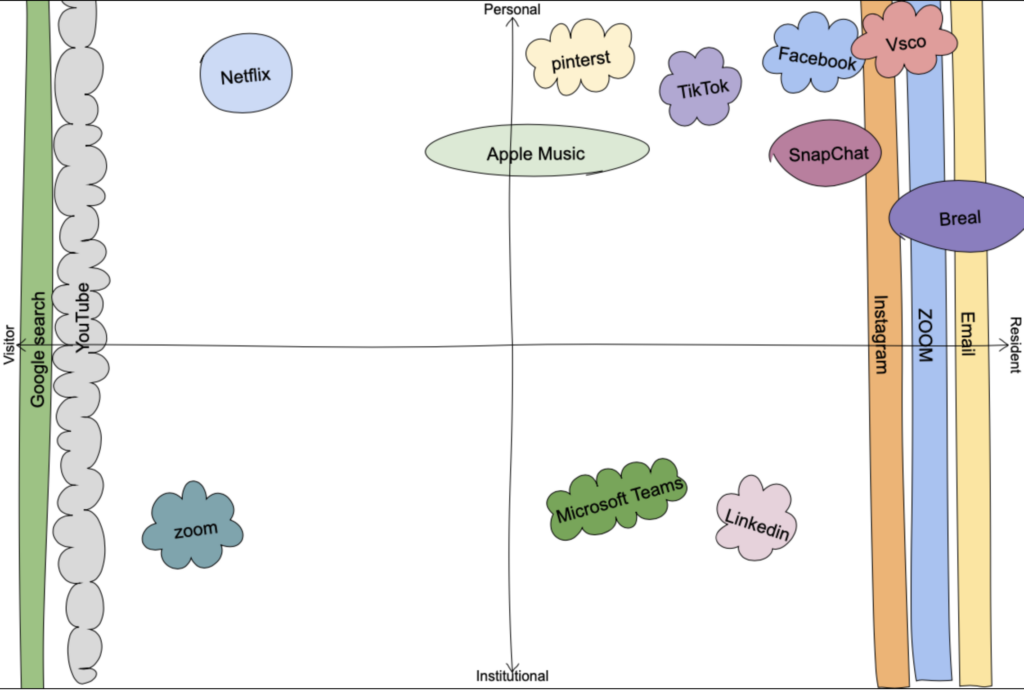- Which social media platforms are beneficial in education?
I believe facebook and instagram are some of the top social media networks that are beneficial to education. With Facebook being one of the most prominent social media sites in the world, the platform is a simple way that allows educators to reach out and network with their peers. Both instagram and Facebook are continuously keeping up with the latest trends, news education and global issues. These platforms allow you to share what’s happening in the world with your peers to help educate and make aware of the situation. There are always cons when dealing with social media however the educational benefits that instagram and facebook hold are like no other. For example – I’m not a frequent news watcher, in fact I never actually watch the news at all.. unless I’m at my parents house. I find that having instagram im constantly getting updated on global news issues, protesting issues, everything. Even if I don’t look for it, somehow it gets sent to me, posted, or talked about by a social influencer. I would say this is beneficial to me because I’m constantly in the loop about current world issues.
- When working with the vulnerable sector, how does social media fit into professionalism and regulations?
When working with the vulnerable sector social media fits into professionalism and regulations in a variety of ways. For some people it may be hard to juggle social media into a more professional outlook, it may be difficult to know when is an appropriate time to post something and when it’s not. You may find yourself wanting to comment something about your co-worker that you think is funny, however it is breaking your work rule of conduct and regulations. You may also think it’s okay to post pictures of your colleagues or customers, however you shouldn’t do so without permission and this could come across as offending someone, or cyber bullying. It’s important to know your boundaries in what is acceptable in YOUR workplace and what is not – and remember you are representing your employer and company so practicing self policing is a must.
- Community communications go beyond blogs and social media shares; how does a PLN help and hinder development of thoughts and ideas in education discourse?
PLN helps development by allowing collaboration and creativity to flow within groups. Having the ability to learn and connect with different people is huge, especially in this day and age. By having the ability to collaborate with different people, new ideas are continuously being sparked and talked about – introducing new educational concepts and learning activities. PLN hinders movement in the education discourse by engaging learners in interactive, collaborative activities to make them more proficient in the subject. Professional learning networks may also hinder development in education discourse as well. While others may thrive in collaborative learning other students may be independent and not like collaborative learning or new networking activities.
- How do educators create discourse?
Academic discourse involves how we alter our communication when involved with an educational discussion. I believe educators create discourse by sharing and inviting friendly participation from everyone. To create discourse you want a welcoming sharing environment, for example, if my teacher wants me to speak on behalf of something but makes me feel rushed, unwelcomed, etc, I’m not going to want to speak on it. If she makes me feel welcomed and my speaking valued then I may want to participate in the discussion. By allowing students to freely discuss their thoughts and encourage them to speak on behalf of what they are interested in, educators are creating a more safe and friendly learning environment for students and learners.
- What is the role of social media in education
Social media is a big part of today’s education plan. Even though it may not seem like it, we are continuously learning from each other in different ways. As a result of social media, students can be more self-directed in their learning, preparing them to find answers on their own and make independent decisions, while also enhancing collaborative learning skills. Classroom reinforcement of these social media skills can lead to better learning outcomes and critical thinking abilities. Social media can provide students with data and information to assist them with their assignments, homework, etc leaning to more learning opportunities.
Discuss in the Mattermost group aspects of education outside of the traditional classroom, include dialogue about how education in the workplace in any capacity can consist of social media & what boundaries should be considered before encouraging discourse in a professional environment.
Education outside of a traditional classroom can be done on platforms via Facebook and Instagram. Online education may be seen as a personal use however, when you emerge yourself into education on social media you can see a more professional outlook on it. Boundaries to consider is how you present yourself on social media. It’s good to remember that what you share, post and, stays on the web for longer than you think. Keep your personal account personal and your professional account professional.

Recent Comments